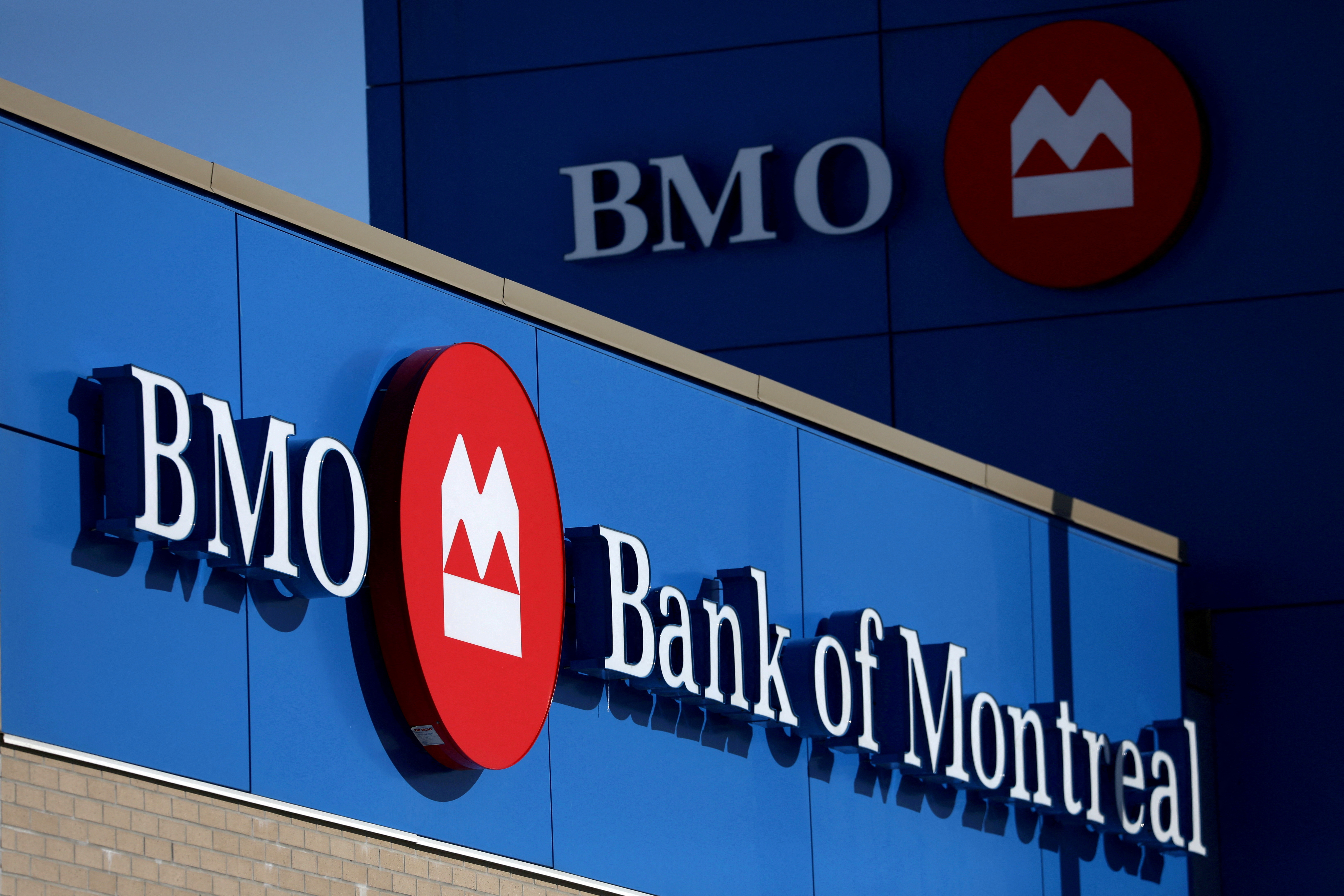
A Bank of Montreal (BMO) logo is seen outside of a branch in Ottawa, Ontario, Canada, February 14, 2019. REUTERS/Chris Wattie/File Photo Acquire Licensing Rights
TORONTO, Sept 17 (Reuters) – Bank of Montreal (BMO) (BMO.TO) is winding down its indirect retail auto finance business and shifting focus to other areas in a move that will result in an unspecified number of job losses, Canada’s third-largest bank said.
The bank, which announced the move on Saturday, has conducted this business in Canada and the United States. The move comes after BMO’s overall bad debt provisions rose to C$492 million, compared with C$136 million a year earlier, for the quarter ended July 31 in a sign of growing stress consumers face from a rapid rise in borrowing costs.
Under the indirect retail auto finance business, the bank works with car dealerships to arrange financing for buyers, who make monthly payments to the lender.
“By winding down the indirect retail auto finance business, we have the ability to focus our resources on areas where we believe our competitive positioning is strongest,” BMO said in a statement to Reuters.
The bank is working closely with employees who will be affected by job cuts to provide support, it said.
In a letter sent to car dealers and seen by Reuters, the head of the business Paul Hunsley said the termination of the dealer agreement would be effective as of Sept. 15, but the bank would fund all contracts submitted and approved prior to the date.
At the end of July, BMO’s consumer installment and other personal loan portfolio stood at C$104 billion, and included C$54.7 billion in home equity loans.
The remaining loans in this portfolio are primarily auto loans, but also include other loans, including loans for boats, recreational vehicles and motorcycles, Edward Jones analyst James Shanahan said.
The Bank of Canada’s data has shown that delinquency rates for vehicle loans are now higher than they were before the pandemic, highlighting the strain on consumers’ wallets as they also struggle to repay their mortgages in a high interest rate environment.
A rapid rise in interest rates is slowing the Canadian economy, and banks are setting aside more funds to deal with an expected pick up in bad loans.
BMO has been turning to the United States for new avenues of growth as markets remain saturated in Canada, spending $16.3 billion to acquire Bank of the West this year and expand in 32 states in the western United States including California.
The United States now accounts for more than one-third of BMO’s overall profits.
(This story has been corrected to say that the US accounts for more than a third of BMO’s overall profit, not two-thirds, in paragraph 12)
Reporting by Nivedita Balu in Toronto
Editing by Denny Thomas, Jane Merriman, Susan Fenton, Will Dunham and Diane Craft
Our Standards: The Thomson Reuters Trust Principles.